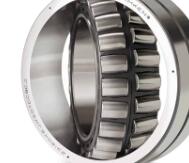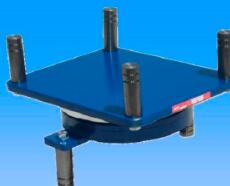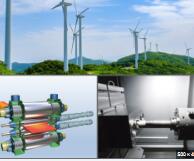Spherical Bearings: Precision and Durability in Motion
Looking for precision and durability in motion?
Check out spherical bearings! These bearings offer top-notch performance for a variety of applications.
When it comes to precision equipment and machinery, spherical bearings are an essential component.
With their ability to provide durability and reliable movement, spherical bearings are the perfect choice for critical parts that require accuracy and longevity.
Spherical bearings are the ultimate motion control solution for high precision and durability in motion.
They offer superior performance in a variety of applications, from automotive to aerospace, and are designed to withstand the rigors of intense use and wear.
Know more about spherical bearings including their precision, durability, and applications. Explore its uses and advantages.
What are Spherical Bearings?

Spherical bearings are bearings that contain an inner and outer ring with a spherical raceway in between.
These bearings are typically used in applications that require a large amount of radial and axial load capacity, such as automotive steering systems, suspension systems, and agricultural machinery.
The spherical shape of the internal raceway allows the bearing to rotate freely in any direction and absorb high levels of shock and vibration.
Spherical bearings can also be used in applications with high radial loads.
The precision of Spherical Bearings
Explanation of precision in bearings
Precision in bearings refers to the degree of accuracy and repeatability of the bearing's internal components.
It is typically measured in terms of tolerances, which are specifications for acceptable deviation from the desired result.
Precision bearings are designed to provide maximum accuracy and repeatability in their movement and operation and are used in applications such as robotics, medical equipment, aerospace, and precision instrumentation.
How Spherical Bearings provide high precision in motion
Spherical bearings provide high precision in motion because they allow for efficient movement and less friction.
The spherical shape of the bearing reduces friction and wear as the bearing rolls along its track, allowing for smoother and more precise motion.
This is because spherical bearings have a lower contact area and a smaller surface area, which reduces friction and increases the accuracy of the motion.
Furthermore, the spherical shape of the bearing helps to keep it in its exact position, avoiding any misalignment or wobbling.
Additionally, spherical bearings can be adjusted to fit the exact motion required, ensuring accuracy and precision.
Advantages of using precision bearings in machinery and equipment
1.Precision bearings reduce friction and increase the efficiency of machinery and equipment by providing a smooth rotating motion, reducing wear and tear.
2.They are more reliable and require less maintenance, leading to lower operational costs.
3.Precision bearings can be used in applications that require extreme accuracy, such as those used in aerospace and medical technology.
4.They can also be used in high-speed applications, as they can handle high levels of vibration and shock.
5.Precision bearings are designed to be durable and can withstand harsh environments, such as those with high temperatures and humidity.
6.They are also designed to provide a longer service life, reducing the need for frequent replacement.
The durability of Spherical Bearings

Explanation of durability in bearings
Durability in bearings is a measure of a bearing’s ability to withstand wear and tear over time.
It is determined by the quality of the materials used, the design of the bearing, and the lubrication of the bearing surfaces.
High-quality bearings are designed to last longer and are made from materials that are more resistant to wear, such as high-grade steel and hardened alloys.
Proper lubrication also helps to reduce wear on the bearing surfaces, extending the life of the bearing.
How Spherical Bearings are designed for high durability
Spherical bearings are designed to have a high degree of durability by utilizing special materials and construction methods.
The inner and outer rings of the bearing are often made of hardened steel or stainless steel for improved strength and wear resistance.
The rolling elements of the bearing, such as the balls or rollers, are also made of hardened steel and are designed to have a low coefficient of friction, which helps to extend the life of the bearing.
Additionally, the bearing’s raceways are precision-ground and polished to reduce wear and extend the bearing’s life.
Finally, the bearing is filled with high-quality lubricant to reduce friction and wear, and the lubricant can be changed periodically to ensure optimal performance.
Advantages of using durable bearings in machinery and equipment
1.Durable bearings have increased load capacity, allowing them to handle heavier workloads for a longer period.
2.Durable bearings can take higher temperatures and still maintain their properties, making them ideal for high-temperature applications.
3.Durable bearings can also be made with a variety of materials to meet specific application needs, such as corrosion resistance or high-speed capability.
4.The use of durable bearings can reduce machine downtime and maintenance costs due to their increased reliability.
5.Durable bearings can also reduce noise and vibration, which can help increase the life of the machinery and its components.
Applications of Spherical Bearings

industries and equipment that use Spherical Bearings
1.Aerospace Industry: Helicopters, Passenger Aircraft, and Military Aircraft
Spherical bearings are used in helicopters to support the main rotor and tail rotor assemblies.
Spherical bearings are also used in the swashplate and pitch control linkages.
These bearings provide a stable and reliable connection while allowing the rotor to move freely and minimize vibration.
Spherical bearings are used in passenger aircraft to support the landing gear, flaps, and ailerons.
They are also used in the control linkages for the rudder, elevators, and spoilers.
The bearings provide a smooth, stable connection that allows for precise control of the aircraft’s movement.
Spherical bearings are used in military aircraft to support the control surfaces and landing gear.
They are also used in the control linkages for the rudder, elevators, and spoilers.
The bearings provide a stable, reliable connection that allows for precise control of the aircraft’s movement.
Additionally, spherical bearings can be used in missile launchers and bombs to help reduce vibration and ensure accuracy.
2.Automotive Industry: Cars, Trucks, and Motorcycles
Spherical bearings are often used in cars in several places, such as suspension components, wheel hubs, and wheel bearings.
They are a great option because they can compensate for any misalignment that may occur due to the suspension system, and they are much more durable than traditional bearings.
Spherical bearings are often used in trucks to help reduce the amount of vibration that is transferred from the road to the cabin.
This can help create a more comfortable ride for passengers, as well as help to extend the life of the truck’s components.
Spherical bearings are also great for providing extra strength and reliability for heavy-duty loads.
Spherical bearings are often used in motorcycles to help reduce the amount of vibration that is transferred from the engine to the handlebars.
This can help create a smoother ride, as well as help protect the components from wear and tear over time.
They are also great for providing extra strength and reliability for high-performance applications.
3.Marine Industry: Boats, Yachts, and Submarines
Spherical bearings are commonly used in boats, yachts, and submarines to reduce friction and provide smooth operation of moving parts.
They are usually found in the rudder and steering system, as well as the drivetrain and propulsion system.
Spherical bearings are also used to support and secure heavy loads, such as engines and propellers, and to connect the shafts and other components of the drivetrain.
4.Mining Industry: Mining Equipment
Spherical bearings are used in mining equipment to improve the stability and performance of the machine.
They are designed to absorb shock and vibration, reduce friction, and provide smooth rotation of the equipment.
Examples of specific applications and benefits in each industry
Construction Industry
In crane applications, spherical bearings are used to support the crane's hoist and trolley mechanisms.
These bearings are designed to handle high radial and axial loads, as well as large moment loads due to the heavy loads that cranes may lift.
They are lubricated with an oil-based grease and are designed to be self-aligning.
Robotics Industry
Spherical bearings are used in industrial robots and automated machinery to reduce friction and wear and to increase the smoothness and accuracy of their movements.
They are used in the joints of robotic arms, as well as in the rotating components of automated machinery.
Medical Industry
Spherical bearings are often used in surgical devices and diagnostic equipment because they provide a great deal of versatility,
allowing for a wide range of motion in a variety of directions, and are highly precise, ensuring that the device performs as intended.
Agriculture Industry
In tractors and harvesters, spherical bearings are used to provide smoother operation and reduce vibration.
The bearings are typically lubricated with grease to reduce friction and allow for an even smoother operation.
Manufacturing Industry
Spherical bearings are used in CNC machines, lathes, and mills to provide high levels of accuracy and precision.
The bearings help reduce friction, decrease wear and tear, and provide smooth, precise operation and movement.
Conclusion
Spherical bearings are an essential component of many machinery and products.
They provide precise motion and enhanced durability for a variety of applications.
Their versatility and reliability make them a great choice for many operations.





